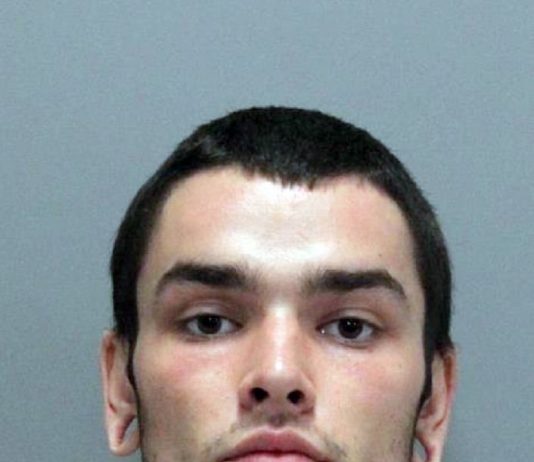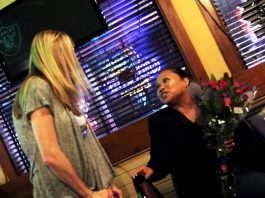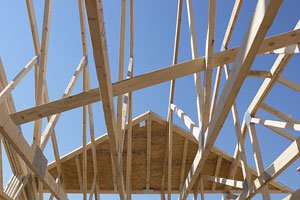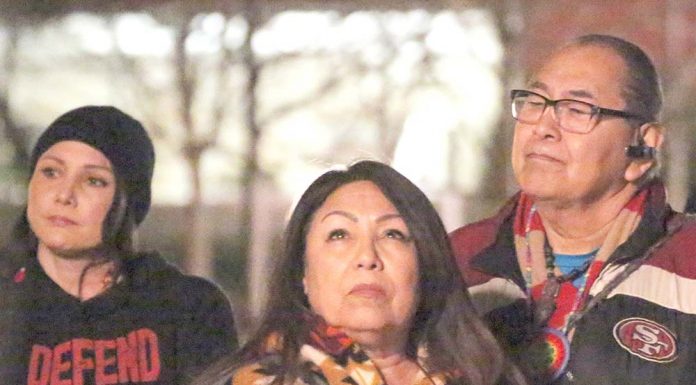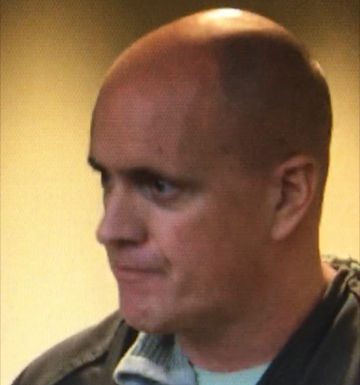Homeowners question city’s BMR program
Janet and Tom Pocus are nearing the twilight of their 30-year agreement with the City of Morgan Hill that has established their home in the Sunrise Meadows neighborhood as part of the Below Market Rate home ownership program.They’re looking forward to the expiration of that contract when, anticipating retirement, they will finally own their home without any further financial obligations or restrictions on what they can do with the property.But the Pocuses and some of their neighbors are worried that recent correspondence from the city’s affordable housing administrator—as well as many changes to the BMR program since they moved in—might delay, or even eliminate their quest for the American dream.The Sunrise Meadows community—located off Calle Mazatan north of East Main Avenue—consists of about 60 homes. Janet Pocus said all of the homes were built in the early 1990s as part of the city’s vast affordable housing program.On a tip from her sister, Janet said she and Tom—who had three small children at the time—put their name in the city’s BMR lottery when Sunrise Meadows, which was developed by now-defunct South County Housing, was in the planning stages.“They drew our name, and we got to choose the (home) we wanted,” Janet said in the family living room one evening in December. “We got to walk through the walls” during construction. The couple in 1994 paid about $156,000 for the home, which was 75 percent of the fair market value. Under the city’s BMR program, home sales prices are marked down to varying levels that correspond to the new household’s percentage of the Area Median Income. In Sunrise Meadows, the homes sold to families at 80 percent of the AMI at the time, according to city staff.About half the homes in Sunrise Meadows—but not the Pocuses’—were built under a “sweat equity” agreement, in which the lottery-winning new homeowners agree to do some of the construction work on the home themselves. In exchange, they received financial down-payment assistance from the city’s BMR program, which was heavily financed by the Redevelopment Agency at the time.“Everybody moved in six to nine months of each other,” Tom Pocus said.Since the Pocus family moved in, Sunrise Meadows has become what the couple and their neighbors say is the perfect example of what the city’s BMR program was designed to create: a tight-knit community of hard-working families who have supported each other on their quest toward home ownership.The Pocuses’ five children, who are now adults, grew up in the Sunrise Meadows home and graduated from Live Oak High School.“Our church is here, our friends are here, our family is here,” said Tom, a former gymnast and gym owner who now works as a field equipment engineer. “We’re involved in sports programs,” he added. The couple has now lived in Morgan Hill more than 30 years.Thus, the Sunrise Meadows community banded together to seek clarification from city staff when they received a letter in late 2017 from Housekeys, the company that manages the local BMR program on behalf of City Hall. The letter consisted of a number of probing questions about the household finances, some of which the homeowners thought were too “personal” and not relevant to their existing BMR ownership contract.At the Nov. 15 Morgan Hill City Council meeting, some of these residents said they are refusing to sign and return the questionnaires to Housekeys. They fear it is a backhanded effort to rewrite their current contracts under the current terms of the ever-changing BMR program (new agreements with BMR homeowners are now for 45 years, not 30, for example), thus indefinitely extending the date at which they can finally call their homes their own.“We understood after 30 years we would be free to sell the home on the open market,” Michele Harvey, also a BMR homeowner in Sunrise Meadows, told the city council Nov. 15. “That meant it was an investment for us. More so than that, it was a place to build community. That is what we have in this neighborhood…We have seen children born (and) graduate, people pass away, and we have all been there for each other.”City aims to ensure complianceTom Pocus and other residents said in the last 20-plus years they have lived in their BMR homes, they have never received such a correspondence from the city or its affordable housing administrator.City Manager Christina Turner and city housing staff, however, said the Sunrise Meadows residents have nothing to fear. BMR owners are not required to re-qualify under the income requirements for their home, and there is no effort underway to force them to comply with the current affordable home ownership rules such as the updated 45-year contract requirement, Turner said.Municipal affordable housing programs typically include periodic monitoring of BMR homes to ensure the owners are honoring their deed restrictions, and the letter from Housekeys is an effort to do that, Turner said. This certification is ideally completed annually, but that has not been the case in Morgan Hill.“It came as a surprise to many homeowners,” Turner said. “The overarching purpose of the letter is to confirm that the owners are occupying the homes consistent with the original BMR agreements with the city.”The Housekeys letter last year went out to all 509 BMR homeowners in Morgan Hill.BMR property deeds are highly restrictive to the homeowner compared with market-rate home ownership. Aside from the usual required monthly mortgage payments, for example, BMR homes must be occupied by the original owner throughout the term of the contract; owners cannot rent out rooms at market rates; any effort to refinance can be sought only through the program’s preferred loan officers; and if they choose to sell the home before the end of the contract, the city gets first dibs. Any sale of a home in the BMR program before the end of the contract must be restricted to the affordable price.Julius Nyanda of Houskeys added that some of the questions on the letter were optional “survey” inquiries, while others were required for household BMR certification. He agreed the questionnaire could have more clearly stated the difference between these categories.City staff “works closely” with Housekeys in overseeing the city’s affordable housing program, Turner added. Housekeys has run this program since 2015, and is currently under a $500,000 contract with the city for that work. Housekeys also manages affordable housing programs for the cities of Gilroy, Campbell, San Francisco and Burlingame.If Housekeys or the city finds that a BMR homeowner is not in compliance with the deed restrictions, they can take legal action to regain possession of the home. The city has done this on limited occasions in the past, “all in the spirit of preserving the affordability of the unit,” Turner said.‘Byzantine’ contracts difficult to understandSunrise Meadows resident Alberto Juarez is currently in litigation with Housekeys, which filed a lawsuit claiming he was in violation of the BMR deed. Juarez’ mother, the original owner of the home, labored on the home construction herself under a sweat equity agreement.However, his mother died recently. Housekeys subsequently claimed that the family was in violation of the BMR agreement because the owner is no longer occupying the home, and she had placed the home in a family trust, according to Juarez’ attorney Eugene Flemate.Juarez and Flemate argue they are not in violation, and the home’s deed states Juarez’ mother could pass the home to her heirs when she died. After months of out-of-court negotiating and mediation, Flemate thinks Juarez—who wants to retain ownership of the family home—will reach a favorable outcome.However, Flemate said the vague, confusing wording of the “byzantine” BMR contracts makes them difficult to interpret for both Housekeys and the homeowner.“A contract is supposed to think of all the possibilities, like ‘What if you die?’” Flemate said. “It looks like nobody thought of that.”Morgan Hill Housing Manager Rebecca Garcia said a total of three BMR homes in the city limits are in litigation, where the owners are accused of violating their affordable housing deeds.City staff expects to bring an agenda item on Morgan Hill’s BMR program to the Feb. 7 city council meeting. This item will discuss the new state Housing Accountability Act and how it will affect the local program, as well as updates on affordable rental projects, “a forecast of upcoming BMR units for sale in the pipeline, BMR ownership certification process update” and other points, Garcia said.In the meantime, Tom Pocus said he will continue to work with and advocate for his neighbors who worry about losing their homes under an arbitrary enforcement of the rules.“The neighbors need a voice to stand up to these people,” Pocus said. “We’re making sure justice is served. I don’t trust the city council, or Housekeys at all. Many people are afraid to say anything because they’re afraid to be singled out.”
Floral festivities
Before the Covid-19 pandemic started, Diana Rasta was hoping to expand her Morgan Hill floral and interior design store by opening another location in the South Bay. And even though the public health emergency has halted those plans, Rasta’s business has been booming.
Rasta is...
Council supports tribe, opposes mine proposal
Following a demonstration outside City Hall led by area Amah Mutsun tribal members and their supporters, the Morgan Hill City Council on Jan. 15 unanimously approved a resolution urging county officials to deny a permit for a mine proposed on one of the tribe’s most significant cultural and spiritual sites.
The past, present and future are tied together
In a September 2005 column printed here, I mentioned my amazing
St. Louise gets repairs
Santa Clara County has completed several major renovation projects at its two hospitals—St. Louise Regional Hospital, O’Connor Hospital—and at the DePaul Health Center, and is completing several new upgrade projects.
A total of $90 million in equipment and facility improvements have occurred or are taking...
The myths of mushrooms
Inside the dimly lit room, No. 13, the air is a chilling 50-something degrees. The slightly damp air makes no difference to the tiny flies that are attracted to the purple fly zapper in the entrance, with the occasional “zzzz” sound. Rows and rows of about 10-foot-high boxed containers of a brown compost are sprouting something white on one side of the room, something slightly brown and large on the other. These are one of Morgan Hill’s most prized commodities: mushrooms.
Judge orders Wolfsmith to pay $70K-plus to sexual assault victims
David Wolfsmith, the former Morgan Hill gym owner who was convicted of sexually assaulting 13 female clients, was sent to San Quentin State Prison following his Nov. 6 restitution hearing at South County Courthouse, according to authorities.From there, Wolfsmith will serve the remainder of his seven-year term on 14 counts—mostly felonies—related to the 13 victims, one of whom was age 13 when he assaulted her, Santa Clara County Deputy District Attorney Tim McInerny said. Wolfsmith will likely be “farmed out” from San Quentin to another facility in the California prison system.“That was a great relief to a number of victims, that he was finally shipped” to prison, McInerny said Nov. 14.Also at the Nov. 6 restitution hearing in Morgan Hill, the judge ordered Wolfsmith to pay more than $75,000 to his victims.This sum includes $25,000 in “non-economic” damages to the 13-year-old victim. McInerny described these damages as “basically pain and suffering.”“Children are the most vulnerable members of our society (and they) have a hard time dealing with the ramifications of these offenses,” McInerny said. He added these effects “can be long lasting.”On June 23, Wolfsmith, 51, pleaded guilty to 12 counts of felony sexual battery by fraudulent purpose, one count of felony lewd and lascivious acts against a child younger than 14 and a misdemeanor count of child molestation.Wolfsmith was arrested by Morgan Hill police in April 2016, after five of his victims reported the crimes. In the ensuing months, more victims came forward to report Wolfsmith assaulted them as well.He and his wife, Julia Wolfsmith, were the owners of Wolfpak Training Center in downtown Morgan Hill at the time of the assaults. Police reports and victims’ statements indicate the assaults—which were ongoing for some of the women—occurred inside the private gym facility.In exchange for the guilty plea, Wolfsmith agreed to serve seven years in prison and fulfill other sentencing requirements, including restitution and registration as a sex offender for the rest of his life.The judge ordered most of Wolfsmith’s restitution payments at the Nov. 6 hearing, but McInerny said some items remain to be settled at another hearing in December.To the 12 adult victims, the judge ordered Wolfsmith to reimburse a collective total of about $50,000 in gym fees, McInerny said. The amount for each victim was determined by the period of time they were assaulted by Wolfsmith and at the same time paying gym fees to Wolfpak.The judge also ordered other “economic losses” to victims. These include the women’s expenses for mental health counseling or ongoing therapy—a common need among victims who have faced sexual assault, McInerny said.McInerny added the restitution order is enforceable by law, and Wolfsmith cannot avoid making these payments by bankruptcy or any other effort.At the Aug. 25 sentencing hearing, several of Wolfsmith’s adult victims told Judge Jacqueline Duong that he manipulated, shamed and groomed his victims in order to gain control over them, before physically abusing them.The women described a “cultlike” atmosphere when they exercised at Wolfpak. After establishing a pattern of fear and intimidation, Wolfsmith physically assaulted the victims while insisting the contact was intended to measure their fitness progress or help them recover from injuries or exercise, according to the victims’ accounts.One of the women described in detail how he told her to remove her top when they were alone at the gym, so he could measure her body for exercise results. He walked behind her and “pulled (her) shorts completely down” and “unhooked (her) bra,” the woman said.Another victim said, after training at Wolfpak for two years, Wolfsmith invited her into the “massage room” for therapy. She immediately felt uneasy as she lied down on the massage table and “his breathing changed” as he began to touch her inappropriately. He then covered her face with a towel and pulled her shorts down. The woman “froze” in panic, she said.Another hearing is scheduled for Dec. 18 to settle up the remainder of the restitution, McInerny said. Wolfsmith has waived his right to appear at future hearings related to the criminal case.
Two arrested after kidnapping foiled
In a peculiar sequence of events, two out-of-town men were taken
Comic fans unite
Local comic book, anime and movie fans attended Ohana Comic Con’s inaugural Morgan Hill Comic Con Jan. 19.
Retailers prep for Black Friday
With the Black Friday shopping spree on the horizon, some retailers get a head start by opening the day before, in the hopes that shoppers will hit the checkout lines after their turkey dinners.
Walmart at 170 Cochrane Plaza will be open for its regular...

